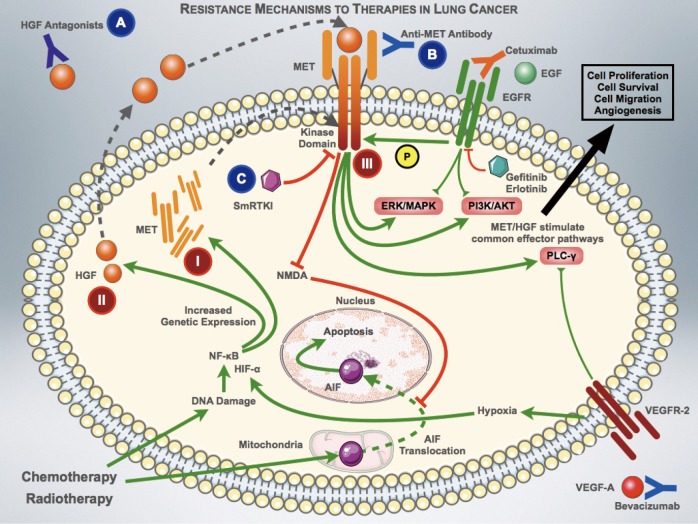Figure 2.
Schematic representation of mechanisms of resistance due to MET/HGF pathway and potential interventional strategies. Chemotherapy and radiotherapy damage DNA which in-turn increases nuclear factor kappa B (NF-κB) mediated increased expression of HGF and MET. MET [I] and/or HGF [II] over-expression are major mechanisms of resistance due to MET/HGF axis against contemporary therapies. VEGF inhibition can cause hypoxia and increased hypoxia-inducible factor-alpha (HIF-α) mediated HGF and MET expression. Rarely, mutations in the kinase domain [III] can cause constitutional activation of MET signaling and contribute to increased resistance. In gefitinib, erlotinib, cetuximab and bevacizumab resistant tumors, MET/HGF activates oncogenic signaling via Mitogen-activated protein kinase (ERK/MAPK) pathway, the Phosphatidylinositol 3 kinase (PI3K-AKT) pathway and the Phospholipase-Cγ (PLC-γ) pathway. The MET/HGF inhibition by HGF antagonists [A], anti-MET antibody [B] or small molecule receptor tyrosine kinase inhibitor (SmRTKI) [C] can help overcome resistance.

